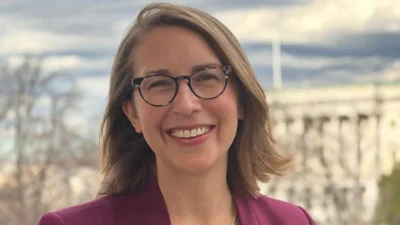GRAND RAPIDS, Mich. – The City of Grand Rapids’ 2023 Fiscal Plan is a blueprint for how it plans to fund essential City services and enhance service delivery. In May, the City Commission approved the City budget based on the fiscal plan. The budget spends $598 million over the course of the next twelve months, from now through June 2023, on a wide range of services to support our mission to elevate quality of life through excellent City services.
What’s generally included in this year’s budget?
Overall, the 2023 Fiscal Plan is a continuation budget that recognizes and supports basic services (a “continuation budget” continues services provided with minor changes for inflation and contract increases). These include road/streets, water/wastewater, streetlights, parks, library, public safety, courts, refuse, economic development, community development, code compliance, permitting, tax assessment/collection, customer service and other support services. It continues progress on the City’s equity journey with more than $36 million dedicated to equity investments.
It focuses on climate justice, climate adaptation and carbon reduction with the greening of infrastructure, electrification of vehicles, expansion of parks, and puts more emphasis on recycling education. Over $200 million will be used to fund water production, water treatment, stormwater management, climate resilience, carbon reduction, parks and green spaces.
The budget contains significant investments in police oversight, Cure Violence and mental health co-response for public safety. It provides for additional de-escalation training for police officers that is community-informed and community engaged, transfer the oversight of the body-worn camera contract procurement and enforcement from Police to OPA. Funding is also included to accelerate engagement with the refugee and immigrant communities along with other key stakeholders to improve community police relations.
The Safe Alliances for Everyone (SAFE) Task Force is active in suggesting ways to reduce violence in the community and is working on holding a SAFE gathering which would serve as a listening session for community partners involved in violence prevention efforts. It also is organizing a gun buyback event, completing previously approved Pitch Night projects and is anticipating sponsoring a future Pitch night.
The City will use its strategic plan and equity, accountability, collaboration and innovation values as guides for public safety reform, including accelerating some of that work with investments included in the budget. It will continue to collaboratively seek innovative public safety reforms that intentionally remove and prevent barriers created by systemic and institutional injustice.
That reform will be community-informed and collaborative. To that end, the City is pursuing partnerships with the National Civic League to conduct a series of discussions around public policy issues within each Ward this summer. Additional engagement and educational opportunities include planned events on Know Your Rights, Let’s Talk About It, and T.R.U.E. Action. These complement the GRPD’s ongoing engagement efforts which include the Police Chief’s Advisory Team, Clergy on Patrol, Explorers, Boys & Girls Club, OnBase, and numerous meetings with faith leaders, the refugee community, LINC Up, Greater Grand Rapids NAACP, Urban Core Collective, Grand Rapids Housing Commission, business leaders and Advocates and Leaders for Police and Community Trust (ALPACT).
The City’s pledge to reform is bolstered in this new budget as resources for the Office of Oversight and Public Accountability (OPA) increased from $405,781 to $1.7 million. That investment will allow OPA to:
- Hire an additional dedicated full-time staff person
- Lead the coordination of additional police training for officers that is informed by community. The co-created training may include – without limitation – cultural competency, understanding immigrant and refugee experiences, bias reduction, impacts of racism on building trust, and history of policing in America
- Address topics such as cultural competency and de-escalation that officers co-experience with community members
- Transfer the oversight of the body-worn camera contract procurement and enforcement from Police to OPA.
The intentional investment of resources in areas outside of the Police Department – along with budget reallocations to OPA – has resulted in the FY2023 Police budget accounting for 33.97% of the General Operating Fund, which down from 38.6% in the 2021 fiscal year budget.
The City is also investing $700,000 for an enhanced mental health police co-response mobile crisis intervention team, offered by Network180, the City’s Kent County public health mental health authority partner. This will allow mental health and behavioral health clinicians to either co-respond or lead the response for certain calls for service for which civilians are more trained to respond than law enforcement.
The City’s 2023 budget also supports other high priorities such as community-led participatory budgeting, Third Ward Equity funding, affordable housing, investments with Micro Local Business Enterprises (MLBEs), climate action and equity focused transit solutions. Specifically, it maintains the $2 million allocation in the budget for community-led participatory budgeting including allocations of $1 million for the Third Ward, $600,000 for the Second Ward and $400,000 for the First Ward to fund investments that are recommended by the community.
The City also has allocated an additional $1 million in the budget for the Third Ward Equity Fund to make sure it intentionally invests in historically underinvested areas of the community.
Over the course of the next year, Grand Rapids will invest a total of $26.7 million in housing and housing stability to include nearly $6 million identified for the Affordable Housing Fund. It also included $8.4 million in its federally-funded Neighborhood Investment Plan and related programs that help a variety of neighborhood and non-profit organizations.
The City of Grand Rapid’s 2023 Fiscal Plan not only maintains the quantity and quality of public services that residents deserve, but it also makes a series of investments designed to be more responsive to the challenges and expectations of the community.
Original source can be found here.





 Alerts Sign-up
Alerts Sign-up